|
The place where the sacred energy of heaven and earth and the human heart converge
K. Marx also pointed out the necessary and sufficient conditions for the Communist Party to be able to fulfill its mission as a vanguard party: having a "brain" and a "heart". The "brain" is intelligence, philosophy (dialectical materialism, later called by V. Lenin as militant materialism). The "heart" is enthusiasm, courage, leading the fight against oppression, exploitation, injustice, and brutality; conscience and responsibility towards the working masses; love for humanity and opposing all evils that are inhuman.
To express that idea, the parallel sentences on the two central pillars of the main gate, built in the style of the three-entrance - four-pillar architecture of Hung Temple, read:
Open the way and build the foundation, the four sides of the mountains and rivers are united.
Climb high and see the vastness, the mountains and hills are like children and grandchildren.
|
For generations, the natural scenery of Hung Temple has been both radiant and beautiful, as magical as a painting. The land of the ancestors is a semi-mountainous area, with a rich and diverse landscape, rich and attractive, with forests, mountains, hills, fields, rivers, streams, ponds and lakes. The people still call Nghia Linh as Ca mountain, Hung mountain. This is the highest peak but its height is only 175m (compared to sea level). Such a height is nothing compared to the thousands of mountains.
But the mountain does not need to be high, the fairy will surely descend and it will be sacred
The abyss does not need to be deep, the hidden dragon is spiritual.
And it is not by chance that Hung mountain is named Nghia Linh - Nghia mountain, not "thai son" or "hong linh" - big mountain. The name of the mountain also implies that this is a place of gathering, not to mention its form or large scale.
From a folklore perspective, the legend of Mother Au Co carries many layers of meaning - not just the story of a hundred eggs, not just the story of dividing into the sea and the mountains. It is also the story of a nation with the same origin, bound by blood and flesh, the story of determining the residential boundaries of indigenous communities, and many other stories...
In the spiritual life of the Vietnamese people, the Hung King era and the Hung Kings have a special place. Just to compare: Among the four immortals in Vietnamese spirituality: Tan Vien, Thanh Giong, Chu Dong Tu and Lieu Hanh, the first three belong to the Hung King era.
In Phu Tho region, along with the Xoan singing heritage recognized by UNESCO since 2011, the Hung King worshiping belief was also listed by UNESCO as a representative intangible cultural heritage of humanity the following year. Also through the practice of the Hung King worshiping belief, the folk culture around Nghia Linh region has been passed down from generation to generation. The death anniversary of the ancestors is also a festival of folk games, of swings, of xoan groups... Up to now, this festival has become a "national festival" but the "original elements" of this belief are still preserved, so that the Hung Temple festival, the death anniversary of the ancestors still has a folk character, a festival of pilgrims from all directions with an increasing number.
|
Beliefs bring identity and reason for living
The worship of Hung Kings - National Ancestors does not have/lean towards religious color but is imbued with the color of time and morality. The affection for the origin has become a community morality. That is the morality of drinking water and remembering its source, the spirit of solidarity, the kindness, the feeling of mutual love. King Hung has become a sacred and familiar symbol, without needing to discuss whether it is real or not. King Hung is in the "supernatural" realm but not "superhuman", "supernatural" to the point of being distant from people. People still call King Hung as Duc To, worshiping him respectfully as worshiping ancestors at home, only at a higher level. In many places, for many generations, people worship the National Ancestor and his generals - those who have contributed to helping the country and saving the people. On the land of Vietnam, the worship of Hung Kings and heroes in the Hung Kings' time is widespread and very familiar.
Also at the main gate of Hung Temple, there is a large plaque “Cao son canh hanh” welcoming pilgrims before going to Ha Temple, through Trung Temple and then Thuong Temple. The four Chinese characters are taken from two verses in the Book of Poetry: “Cao son ngam chi / Canh hanh hanh chi”. The translation is: High mountains to look up to, big roads to walk on. The big road implies that people walk together, follow together, and are of one mind. The spiritual path of gratitude to ancestors is also the path of solidarity, the path of praying for national peace, people’s peace, health, and prosperity.
|
The ancient Hung Kings did not leave behind any written heritage, but the Vietnamese people passed it down to remind each other and were proud of the noble qualities of their nation expressed through legends.
The bond of blood and affection through the legend of the clans being born from a hundred-egg sac from mother Au Co. Vietnamese people still call each other “dong bao” – “dong” easily means together, “bao” means sac.
The people's consciousness always remembers and passes down beautiful legends about the characters who were partly holy and partly human in the early days of the nation: The story of Son Tinh's mountain defeating Thuy Tinh's water; the story of Lang Lieu's filial piety and creativity with banh chung and banh day; the story of Saint Giong fighting the enemy without waiting to grow up; the story of Chu Dong Tu and Tien Dung coming together strangely like a predestined fate... are sparkling legends, creating the vivid and attractive identity of Vietnamese culture.
Looking deeply through the shadow of time, through the mysterious mist of legends, we can see many meaningful things: The will to fight against natural disasters and floods in Son Tinh, against invasion in Thanh Giong; The spirit of creative labor to survive and develop through the legend of the watermelon of Mai An Tiem; The spirit of respect for labor and creativity in the banh chung and banh day of Lang Lieu; The pure love that overcomes class barriers between Tien Dung and Chu Dong Tu...
The people, in the past and still today, sincerely believe that they are descendants of King Hung. Finding concrete evidence, determining the dates to draw a picture using scientific methods about the dawn of the nation's founding from the time of the Hung Kings is the job of archaeologists and historians. The people's belief has not (need to) apply those scientific achievements. Just know that the people never worship the wrong person.
|
Fostering a sense of national sovereignty
During the Hung King period, there was an early affirmation of sovereignty over a territory with the distinctness of “river and mountain lands”, of customs and practices, of a culture - civilization that had been shaped. History did not record specific things about that era in the form of written documents, only traces of the brilliant Dong Son Culture with many perfect and mysterious bronze artifacts remained. But for thousands of years, pride in the Hung Kings was deeply ingrained in the hearts of the Vietnamese people, not fading from generation to generation.
The Hung King period and the first primitive state marked the relatively early appearance of an ancient human culture on Vietnamese land. Following that, the Au Lac country of An Duong Vuong with the capital of Co Loa affirmed the existence of a local government on an independent territory between the Red River and Ma River basins.
The deep awareness of national sovereignty, the most important characteristic of Vietnamese cultural identity and the reason for living of the Vietnamese people throughout thousands of years of history, has created a persistent will to fight from generation to generation - to rebel and be suppressed, then continue to rebel until independence is regained, even if that journey has to last for thousands of years with many sacrifices.
The Trung Sisters' Uprising opened the glorious pages of the struggle for independence and freedom. The heroic flame ignited by that uprising has never been extinguished. History will forever echo the heroic fighting career of the famous uprising leaders: Trieu Thi Trinh, Ly Bon, Trieu Quang Phuc, Mai Thuc Loan, Phung Hung, Khuc Thua Du, Duong Dinh Nghe. The people's uprisings have repeatedly interrupted foreign domination. With the victory at Bach Dang, Ngo Quyen and the people of Dai Viet drowned the long-lasting yoke of domination under the river of history, bringing the nation into the first period of restoration, opening an era of development of independent and autonomous Dai Viet culture and civilization.
The Trung Sisters fighting the enemy, Dong Ho folk painting. |
From the sparkling legend of pulling bamboo to fight the invaders during the Hung King period, echoing the spirit of the Trung Sisters, the dynasties from Ngo, Dinh, Tien Le, Ly, Tran... have succeeded each other with the consciousness of "mastering a region". That spirit, that will created the strength to defeat all invaders. That spirit and will not only created an indomitable determination but also forged very intelligent and creative people in fighting and winning, although always having to "use the few to fight the many", "use the weak to fight the strong", but have continuously caused the invaders one surprise after another.
The Hung Kings' nation-building career was recalled by President Ho Chi Minh to continue with the soldiers of the 308th Division at the Hung Kings' temple on September 19, 1954, before the army marched to take over the capital: "The Hung Kings had the merit of building the country, we, Uncle and nephew, must work together to protect the country . "
President Ho Chi Minh talks with soldiers of the Capital Regiment at Hung Temple (Phu Tho) in 1954. |
Following the tradition of their ancestors, the Vietnamese people have resolutely defended the independence, freedom and sovereignty of the country, fought steadfastly and won glorious victories against the most aggressive and powerful invaders of the 20th century through two 30-year resistance wars and continued to protect the integrity of the southwestern and northern borders of the Fatherland. Like a continuous source flowing from generation to generation, like the circulating veins spreading and penetrating deep into every fiber of the homeland, the tradition of national solidarity is always closely linked to contemporary life in every part of the country, deeply influencing every Vietnamese soul.
The wars of the Vietnamese people were often not only conducted on the military and political fronts but also on the diplomatic front. Each time they defeated the invaders, the Dai Viet state always took the initiative to resume diplomatic relations between the two countries.
|
To protect the Fatherland, the Vietnamese people did not build a Great Wall with the efforts and lives of millions of people. But the Vietnamese people built a “Great Wall” with their patriotism and humane spirit. The people condemned My Chau’s naive and careless actions, revealing national secrets and allowing superior “high-tech” weapons to be neutralized. But the people still pitied that girl who lived with sincere feelings and was faithful in her marital relationship.
When the invaders came, the people united to fight to the end to drive them out, but when the enemy's will to invade was crushed and they were forced to lay down their weapons and "seek peace", the Dai Viet people were ready to be lenient, generous, "open their hearts and love life" to "put an end to war forever" (Nguyen Trai). When the invaders were defeated, the ethnic community returned to a life of hard work and patience. "The guns and swords were put down and the peace was restored as before" (Nguyen Dinh Thi), Vietnamese villages were once again simple and benevolent with a long-standing tradition of solidarity and mutual assistance.
Sustainable factors and limitless power
In Vietnam, community spirit and patriotism are special products of economic and social circumstances, becoming the survival conditions and eternal vitality of Vietnamese people and the Vietnamese nation in the face of all challenges.
|
The Vietnamese people place the interests of the community above personal interests, and the interests of the Fatherland above the interests of the family and locality. Every individual feels happy when living in the love of family, village and Fatherland, the most painful thing is to be separated from the life of the community. The sense of community is firmly reinforced in the customs and practices that are maintained from generation to generation.
In many places, in the later stages of development, some customs and practices were “codified” in village covenants, becoming community standards of conduct. These were the rules for cultivating common fields, the covenants for helping each other build houses, and the rules for family and village life. Many products of intelligence and talented hands were also created from views and themes about the community. Without that spirit of solidarity and struggle, without that spirit of diligence and creativity in labor passed down from our ancestors, we would not have the country we have today, and we would not be able to affirm our national character.
Inheriting and promoting lessons learned from the Dien Bien Phu victory to continue building the great national unity bloc in the new era. Photo: QĐND.vn |
Community spirit is also expressed in solidarity between generations, localities, communities, and religions, and is also expressed in hospitality, in proper and flexible behavior, with people of character and a sustainable culture that has continuously developed its strength through historical periods.
Vietnamese villages have made great contributions during the period of resistance against foreign invaders. Villages have become solid fortresses, formidable fighting units throughout the country, causing the invaders to encounter countless difficulties in conquering and pacifying. Wherever the invaders went, they could be attacked. Very early on, Nguyen Ai Quoc summarized the traditional strength of his ancestors to defeat the northern invaders: “Thanks to the will for independence and the thirst for freedom rather than the strength of the army, the South won”[1].
People built many temples to honor and remember the heroes who saved the country, reminding their descendants to remember the heroic feats of those martyrs. But first and foremost, making people respect and admire the heroes is the core of their actions. That is the spirit, sentiment, and deep sense of community of the heroes with the Fatherland and with their compatriots.
In those heroes, patriotism also comes from love for the people, saving the country also saves the people. All heroes when rising up and fighting to save the country all started from love for the people, from deep emotion and indignation at the scene of their compatriots being miserable and oppressed. And the most typical person is President Ho Chi Minh - the national liberation hero, a cultural celebrity honored not only by the Vietnamese people but also by the whole world.
|
The Vietnamese community spirit is a sustainable factor, bringing boundless strength to win and overcome all difficulties and challenges in the cause of protecting and building the country. It is the mutual attachment in the work of the village, of the country as well as in the private life of each family. The community spirit combined with the tradition of bravery and intelligence creates the identity of solidarity in the struggle.
|
The spirit of community is most concentrated in the tradition of solidarity in fighting natural disasters and protecting the country. The spirit of solidarity combined with the heroic, intelligent, diligent and benevolent character has created the core of the Vietnamese identity. The spirit of community in Vietnam and its proud consequences were condensed by President Ho Chi Minh in the slogan "Unity, unity, great unity - Success, success, great success" as the ultimate motto when organizing the implementation of revolutionary tasks.
In the new era, the cause of building a prosperous Vietnam with a worthy position in the region and the world requires continuing to promote and consolidate a large and solid great solidarity bloc in order to gather and promote all internal and external resources, making good use of opportunities. We are facing a historic opportunity to bring the country into a new era, successfully building a Vietnam with a rich people, a strong country, democracy, equality, civilization, realizing the goal of becoming a developed country with high income by the middle of the 21st century, successfully realizing the wishes of President Ho Chi Minh and the aspirations of the entire nation.
|
Source: Nhandan.vn
Source: https://baoquangngai.vn/media/emagazine/202504/emagazine-tin-nguong-tho-cung-hung-vuong-va-tinh-than-gan-ket-cong-dong-56a174e/


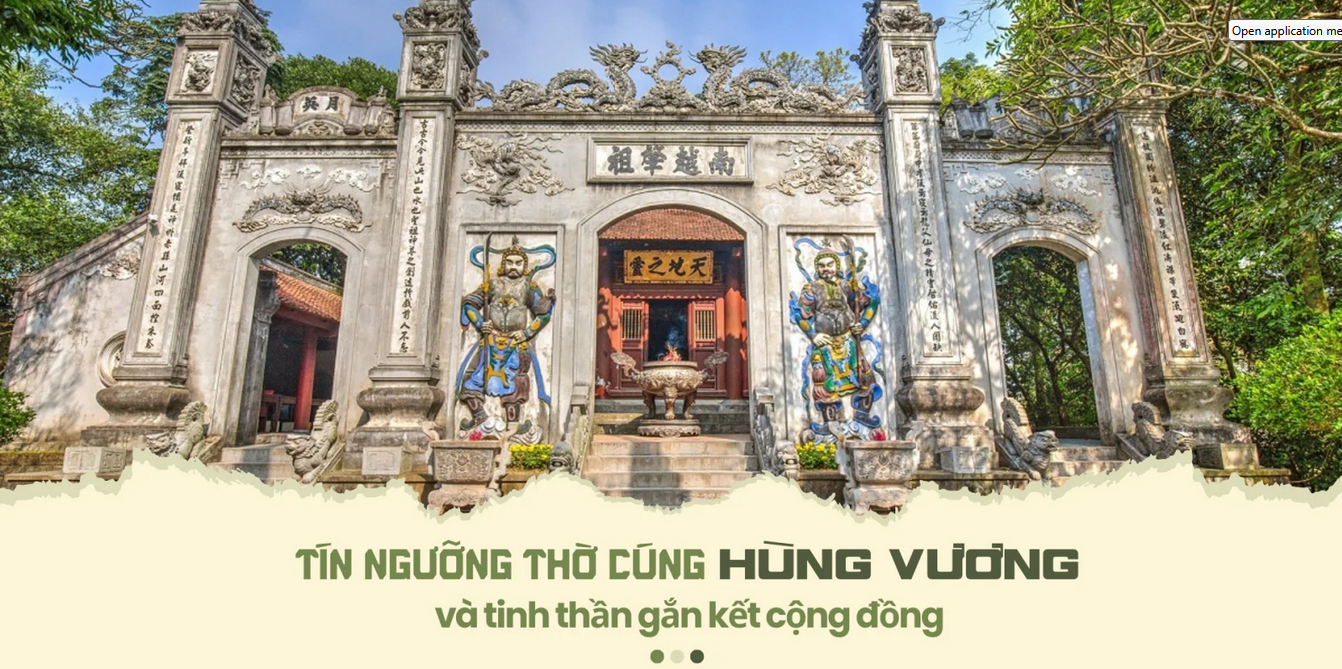
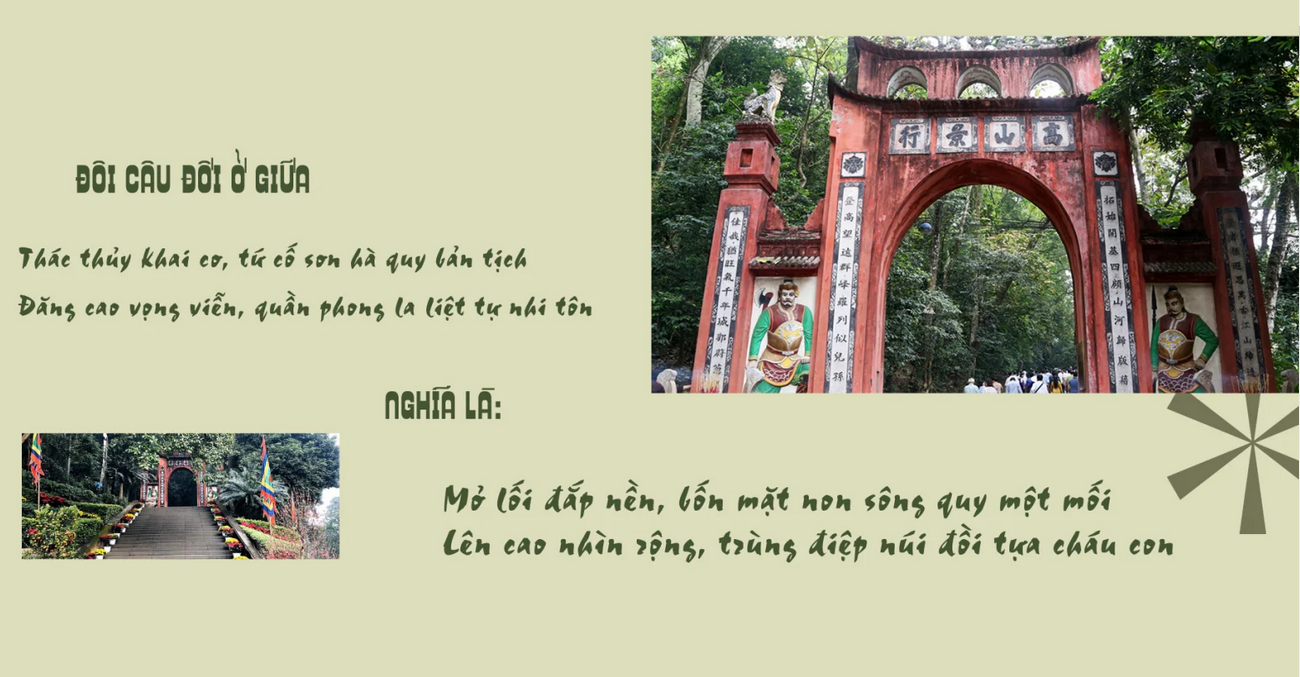
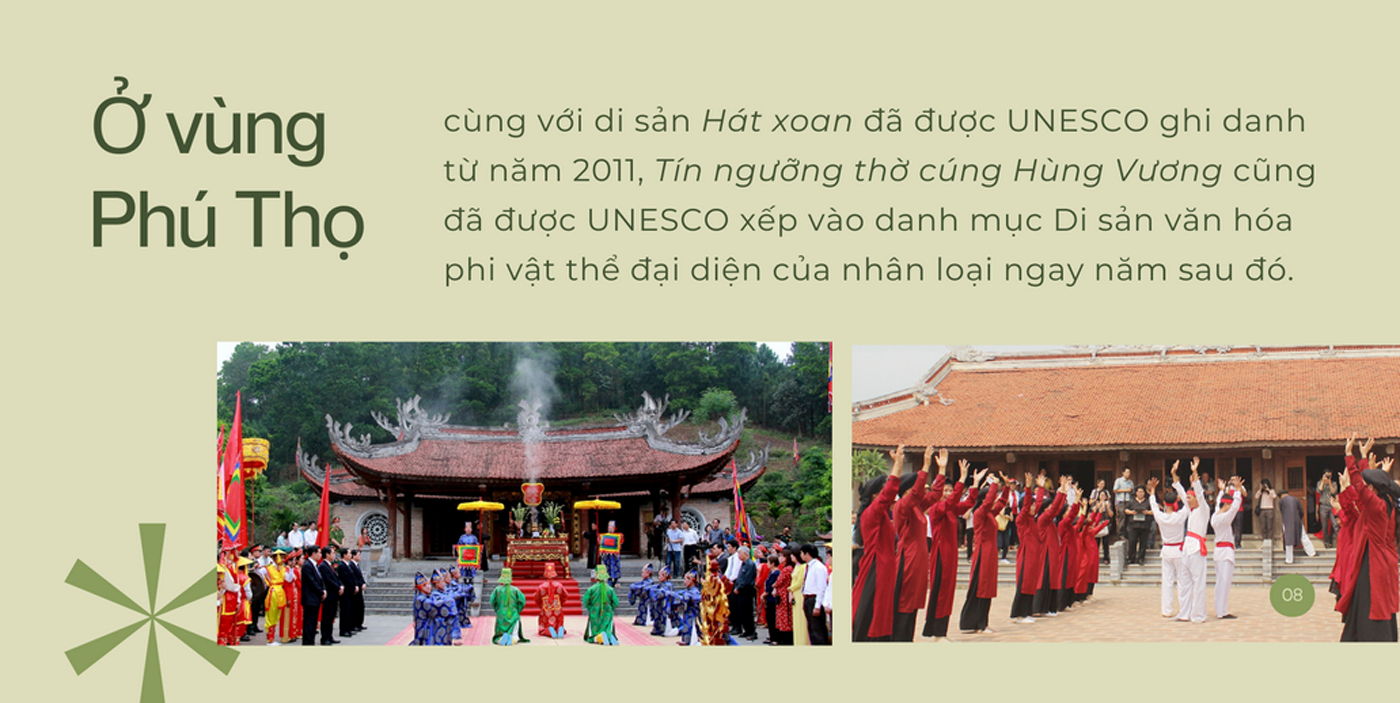
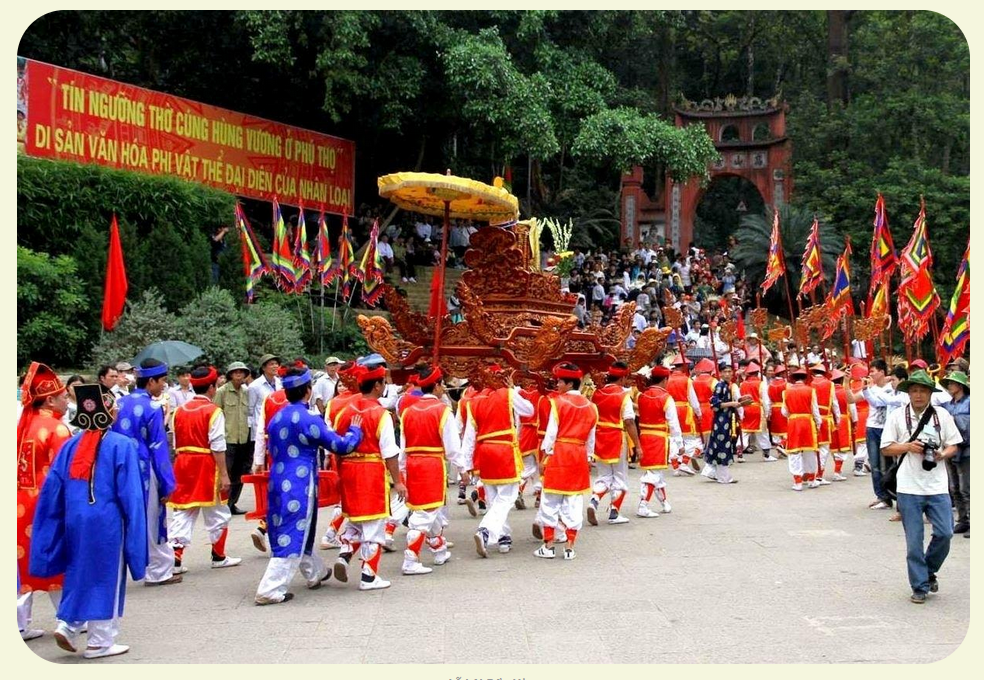
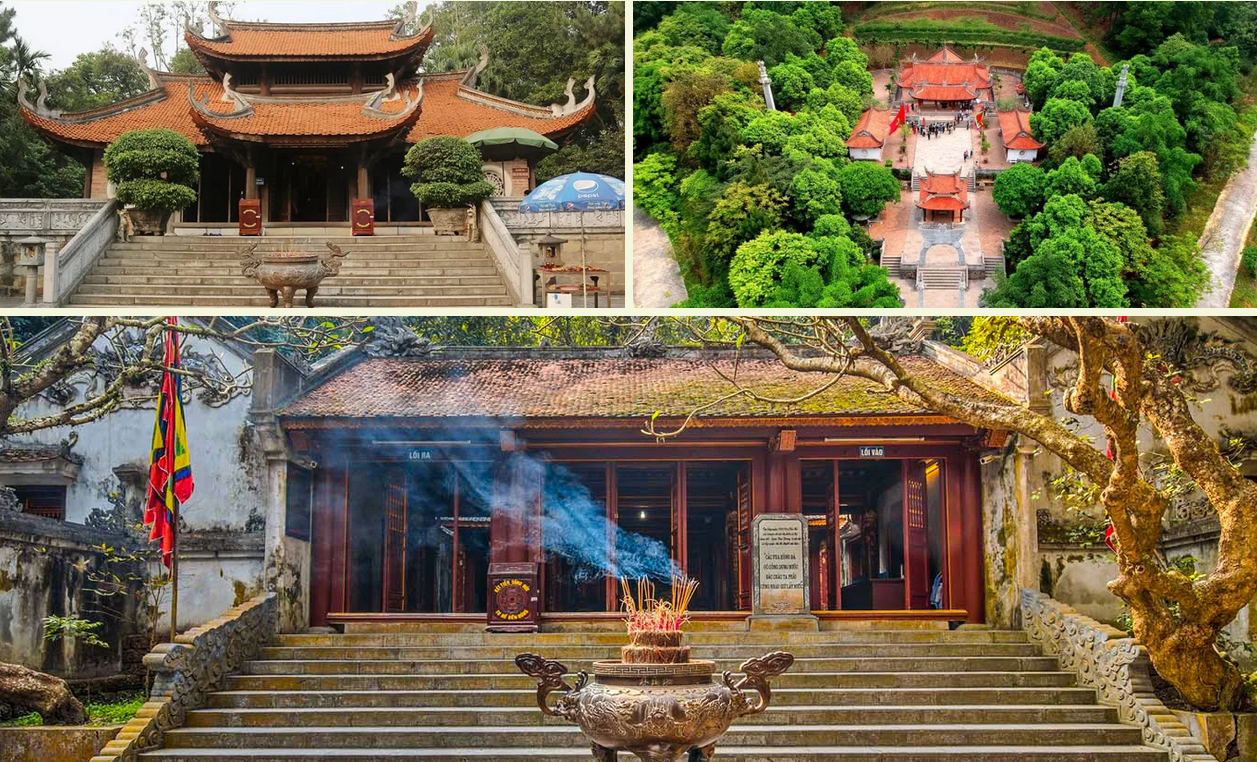
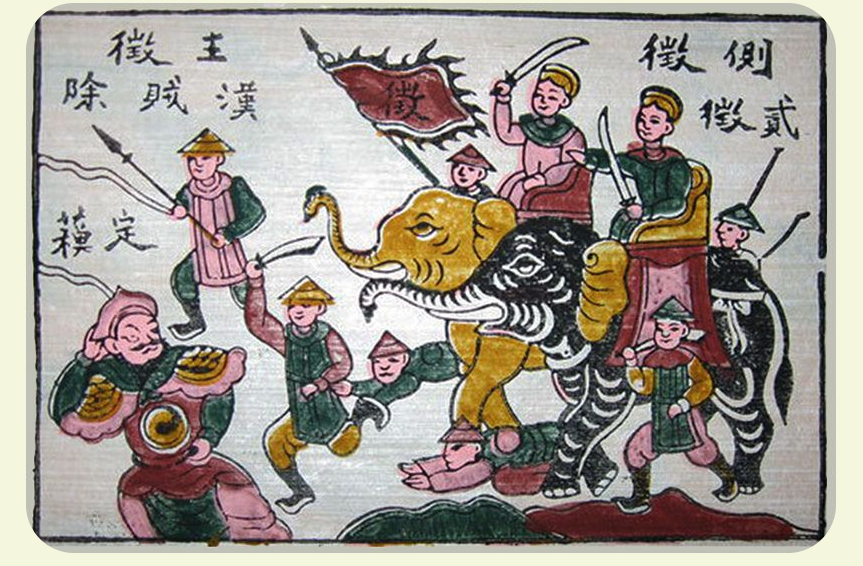
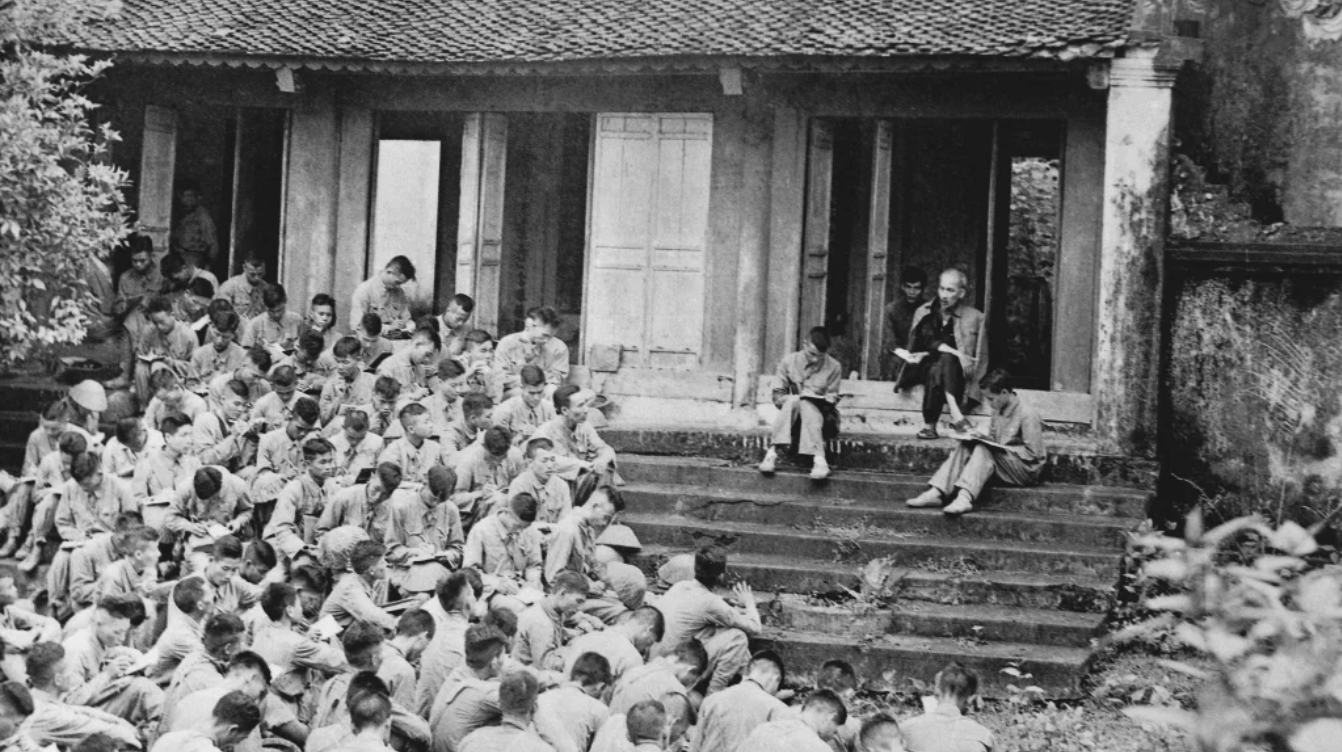


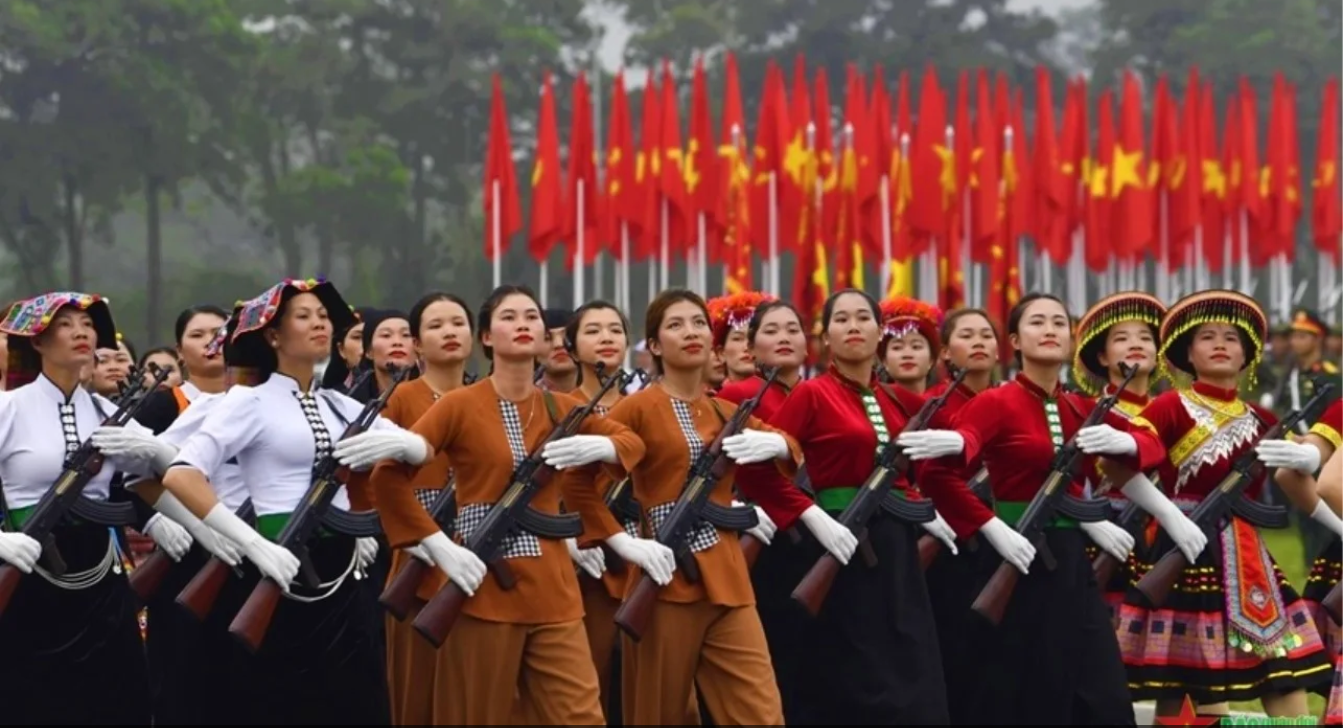
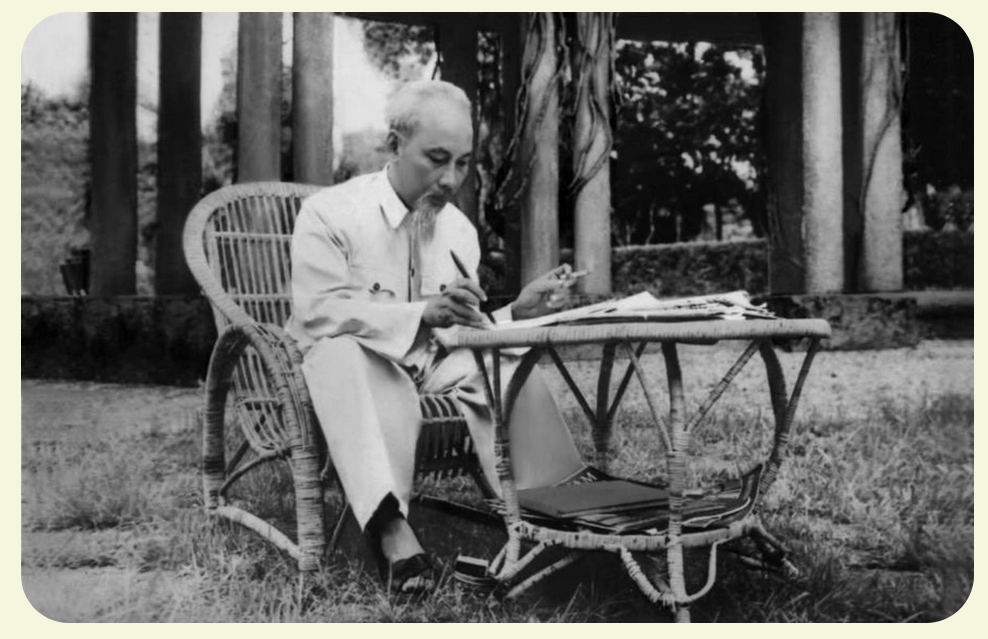
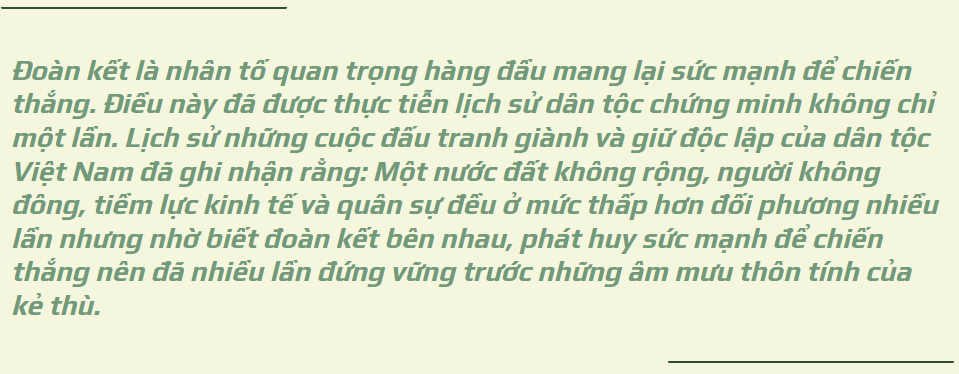

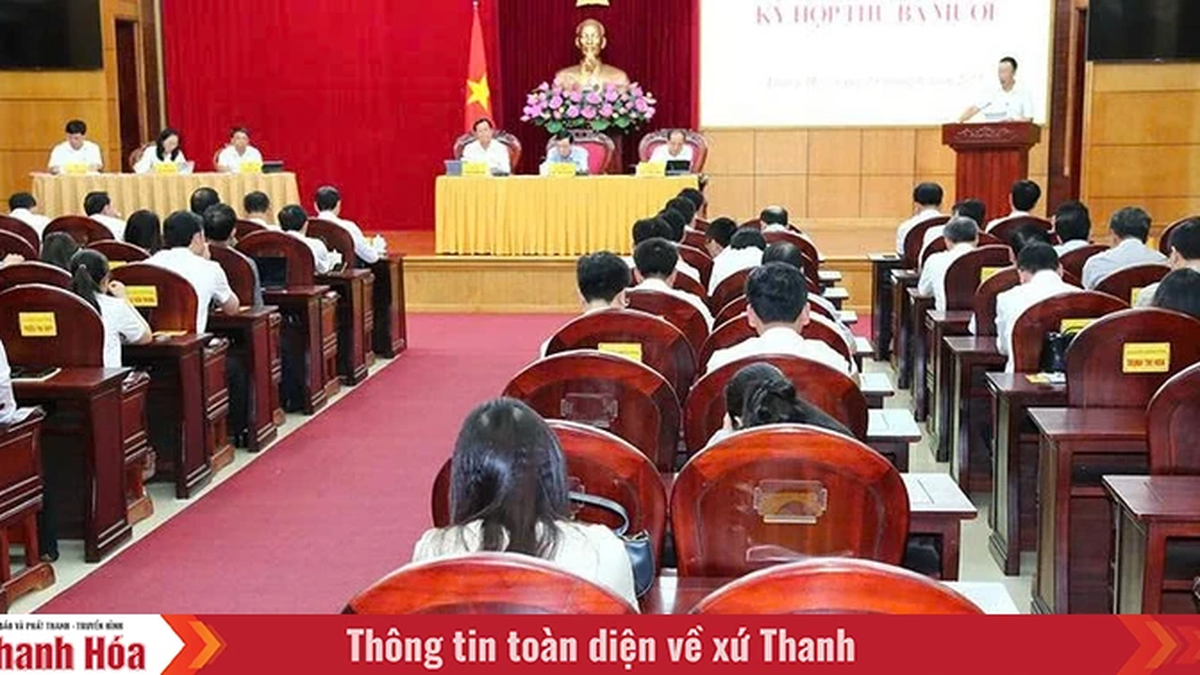

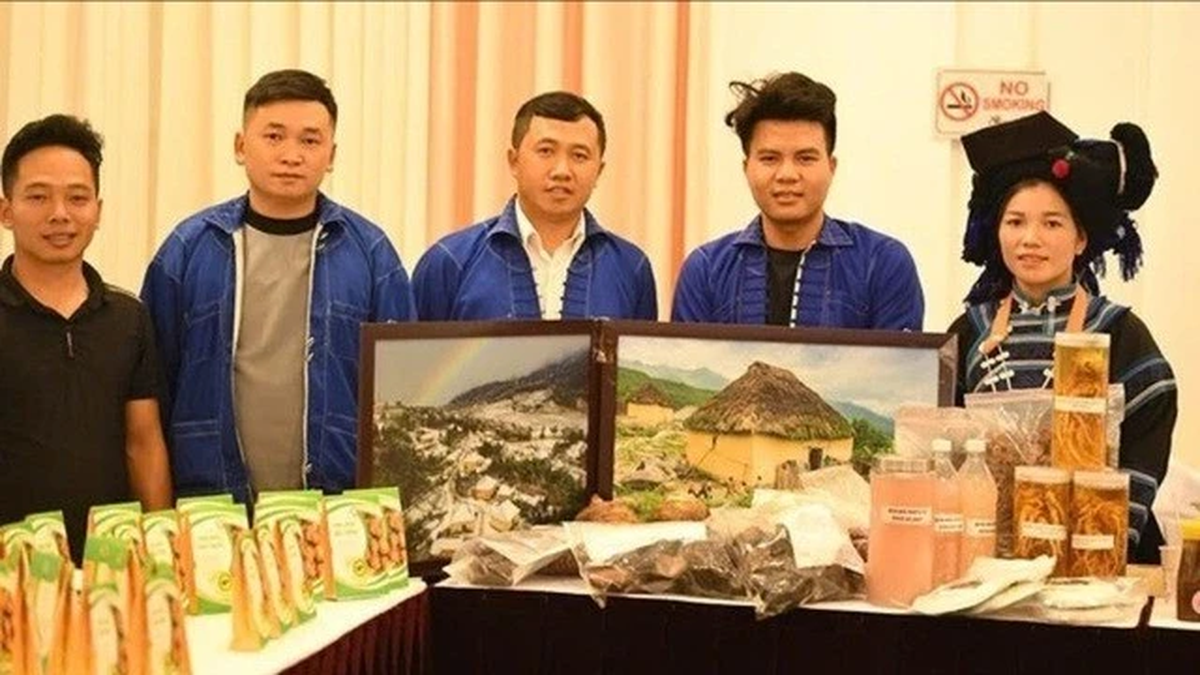

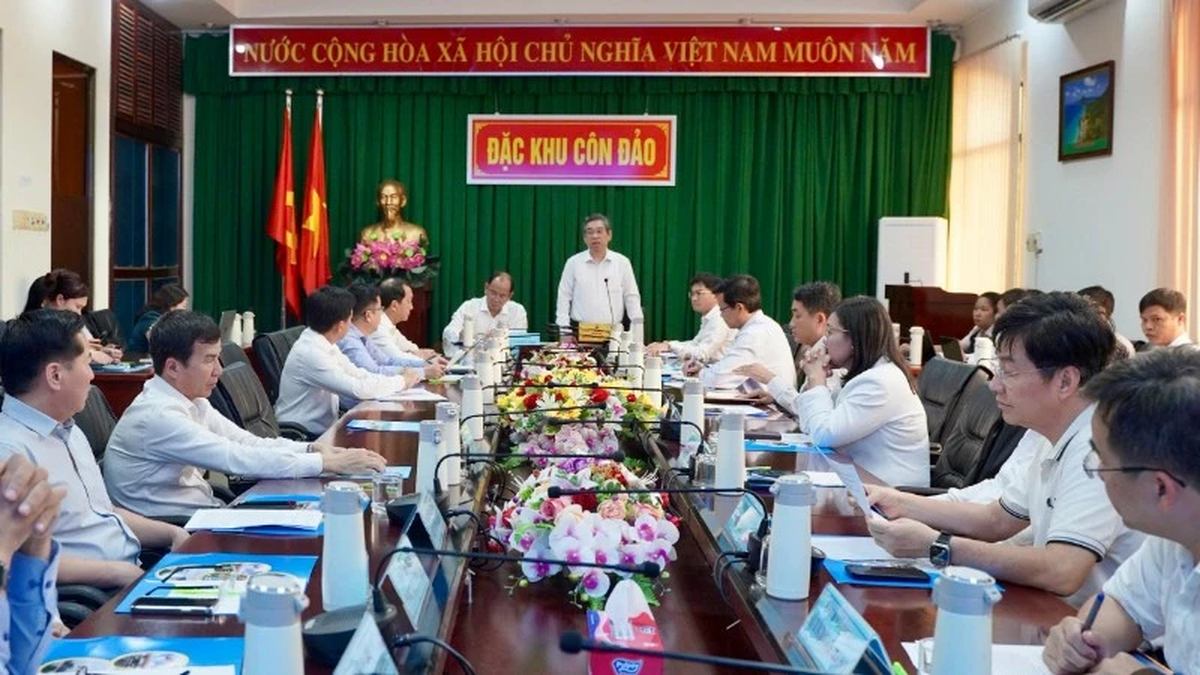
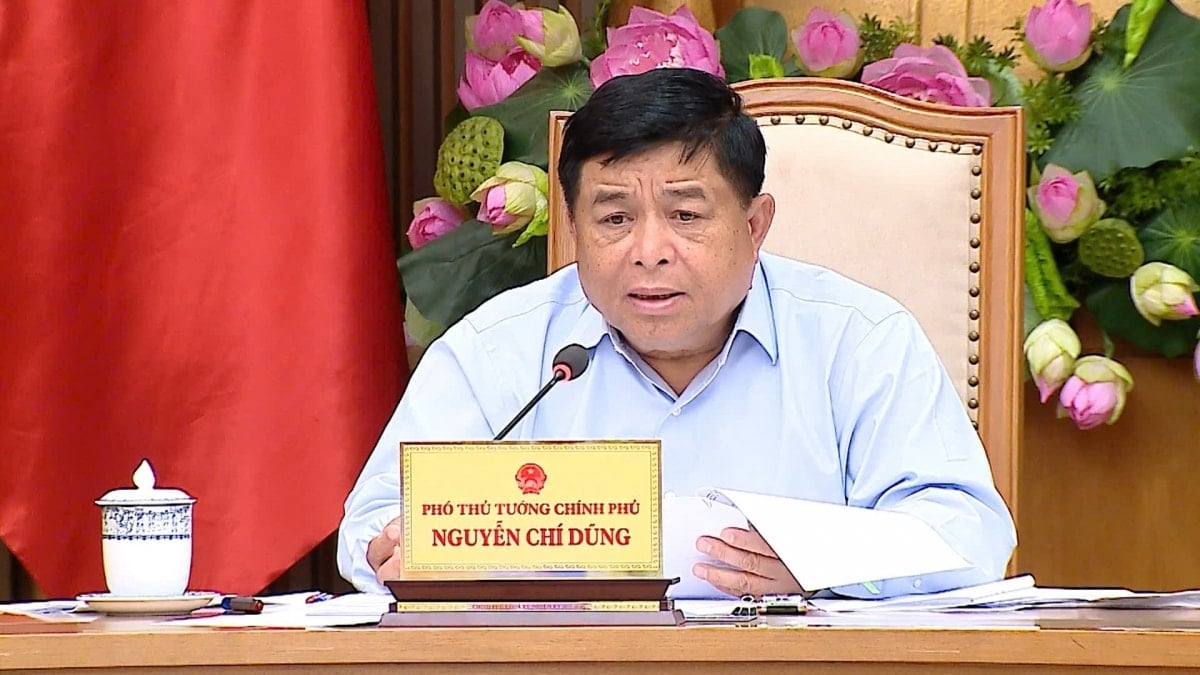

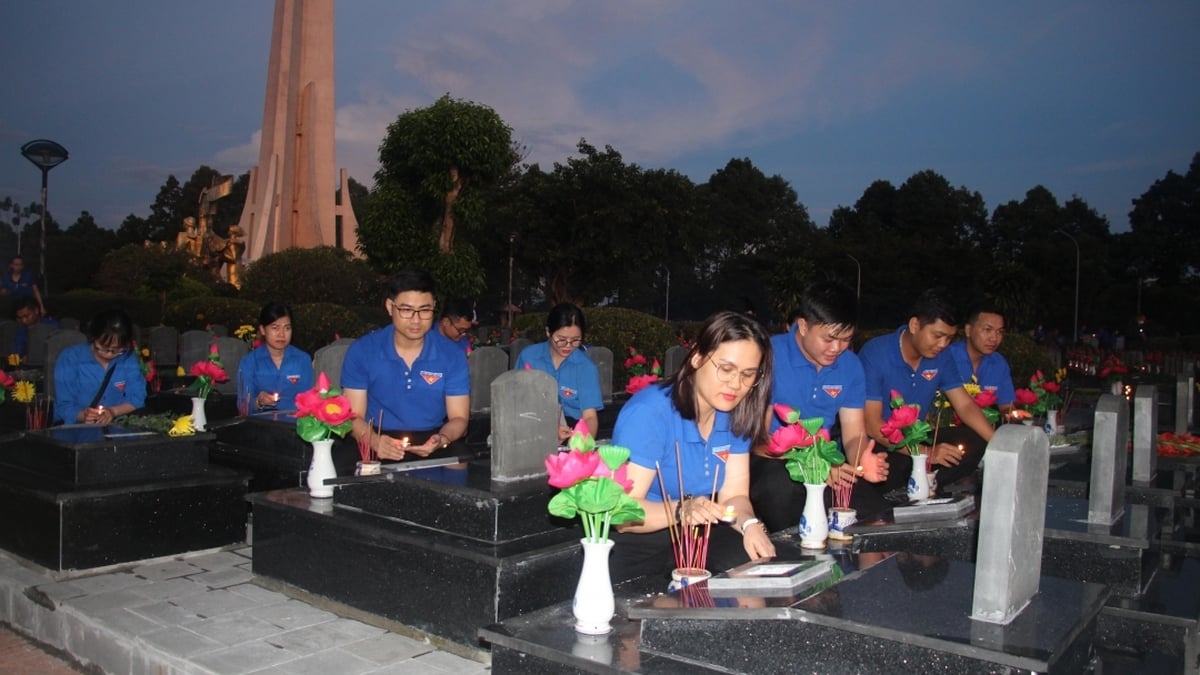
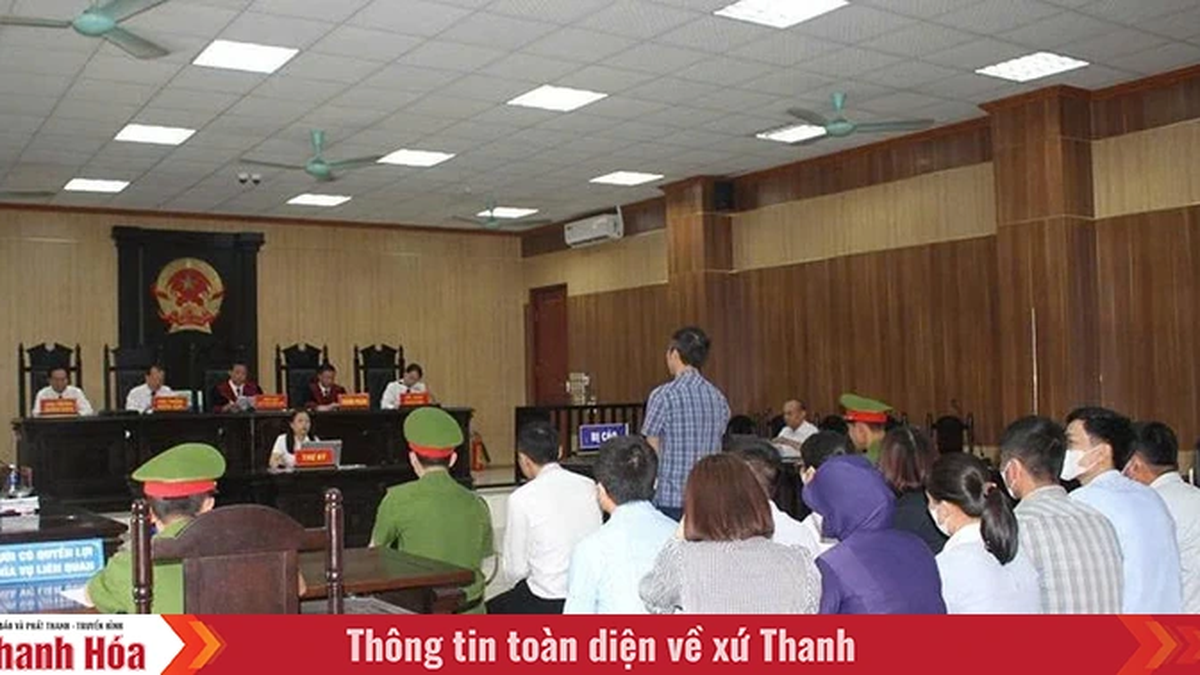








































![[Maritime News] More than 80% of global container shipping capacity is in the hands of MSC and major shipping alliances](https://vphoto.vietnam.vn/thumb/402x226/vietnam/resource/IMAGE/2025/7/16/6b4d586c984b4cbf8c5680352b9eaeb0)













































Comment (0)